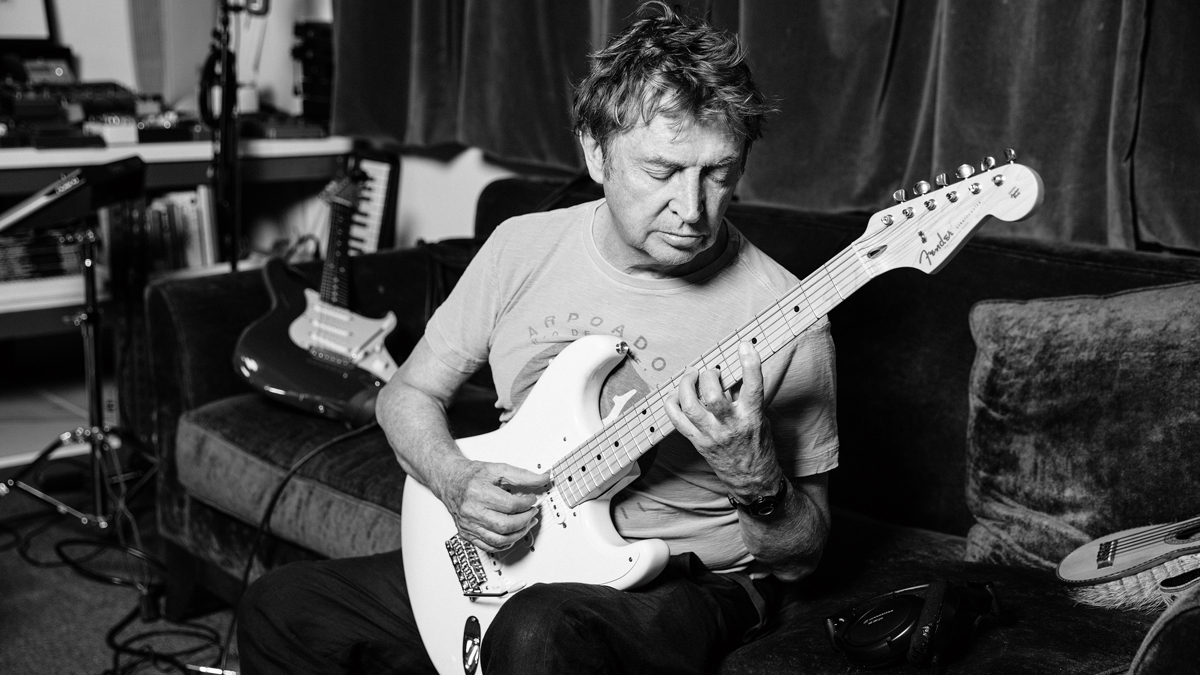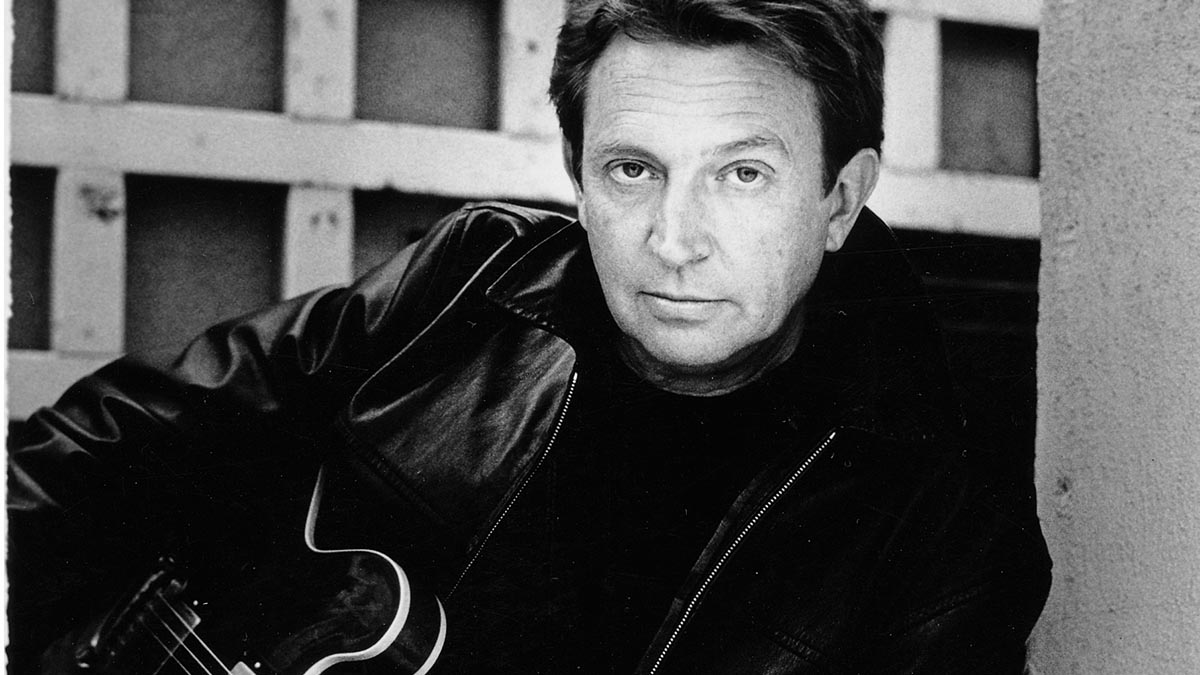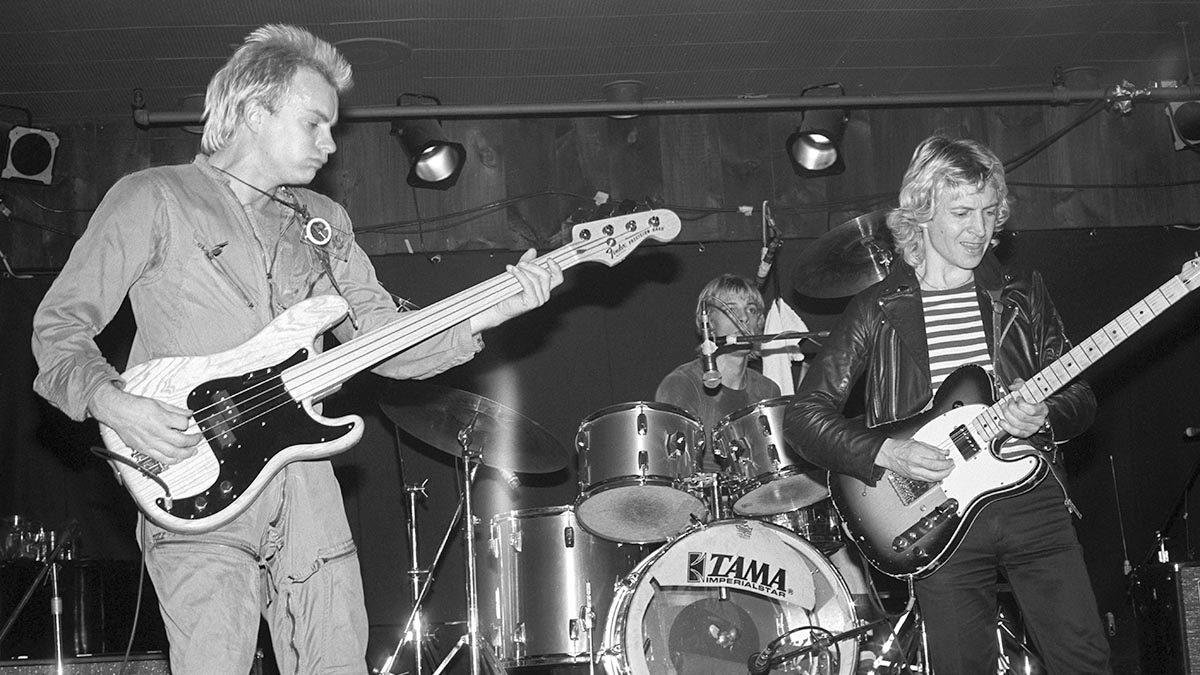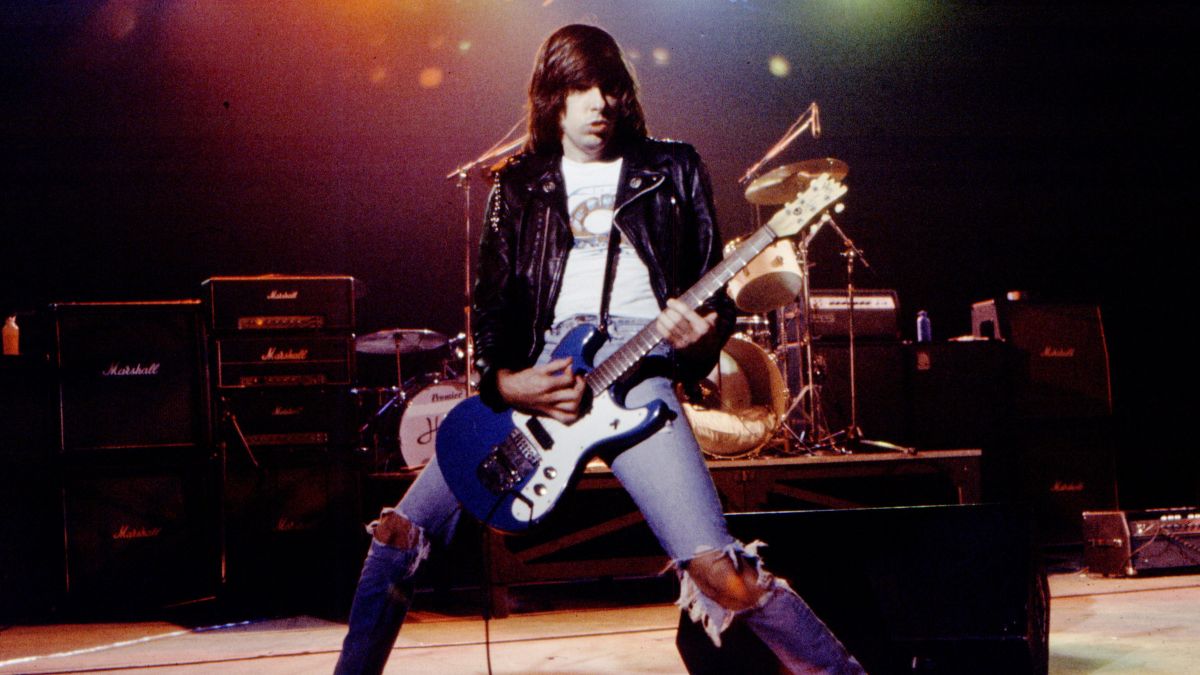Andy Summers: “One of the things I loved about playing in The Police was that it was all guitar all the time! But it needed someone like me to fill that out”
From jazz roots to worldwide fame with The Police, he developed a signature style that defined the post-punk era. “Being a guitar player,” says Andy Summers, “is who I am”

All the latest guitar news, interviews, lessons, reviews, deals and more, direct to your inbox!
You are now subscribed
Your newsletter sign-up was successful
By the time The Police hit big with their 1978 debut LP Outlandos D’Amour, Andy Summers was already in his 30s, and a seasoned guitar player. He’d got his break as a teenager in the '60s, playing with Zoot Money’s Big Roll Band on the circuit, rubbing shoulders with Jimi Hendrix and Pink Floyd.
He was once mooted as Mick Taylor’s replacement in The Rolling Stones, but instead rose to worldwide fame as a third of one of the all-time great rock bands.
The Police’s best-known songs bear the hallmarks of his guitar style – sophisticated chord voicings, clever lead salvos, percussive rhythm work and inventive use of tone. His much-imitated echo/chorus combo became an era-defining guitar flavour.
Outside of that band, Summers has had a long and fruitful solo career, his catalogue rich with explorations of ambient, fusion, world music and more. He’s also a writer (his recent short story collection, Fretted and Moaning, is all about guitarists, and a great read), and an avid photographer too. This latter passion directly inspired his hypnotic current album, Harmonics of the Night...
Musical inspiration comes in many forms
“I’ve got a photography show at the Mayfair Gallery in London, and Harmonics of the Night came about because I wanted to create some music for it, instead of having some naff radio program going on in the background as people look at the work.
“I got this little pedal from TC Electronic [Brainwaves Pitch Shifter] and it’s amazing. It’s got this intervallic thing – you play a note and you get a second one with it. I was in my studio and came up with this 20-minute, one-take improvisation I called A Certain Strangeness.
“It was a real moment of inspiration. That will play on a loop during the whole exhibit, and it prompted the music on the rest of the album. It’s like guitar chamber music – I’m really pleased with it.”
All the latest guitar news, interviews, lessons, reviews, deals and more, direct to your inbox!
Improvisation is a valuable skill
“I’m an improviser. I grew up playing jazz guitar, influenced by Wes Montgomery and Kenny Burrell, Jimmy Raney, Miles and Mingus – that was my background, not pop music. And you pick up a lot of things along the way, but I definitely had the skills. I could play the whole solo on [Montgomery’s] West Coast Blues when I was 16.
Some bands would take two years to make an album and I’d think, ‘Why? Ours are made in five days!’
“I learned it all by ear – I just slowed the record down and kept trying to get to the notes until I got the whole thing. That kind of stuff gets right into your soul and stays with you for the rest of your life. In the early days of The Police, there was a lot of improvisation. People think it was all set out, and it wasn’t; we were kind of making it up as we went along. We were always stretching ourselves and seeing where our chops could go.
“In soundcheck, as long as the sound was there, we wouldn’t have to rehearse Roxanne or the rest of the set. We would just jam and sometimes things would come out of it, and we’d come back to ideas and develop them into something. And we made our albums really quickly – we didn’t sit around labouring in the studio for a year at a time. Some bands would take two years to make an album and I’d think, ‘Why? Ours are made in five days!’”
Playing music is a gift
“Occasionally I’ve been amazed at the thought: how do you get through life without playing music?! And people do of course, but to me, when I got my first guitar in my hands when I was 10, the commitment was there immediately. I never thought about doing anything else except being a guitarist.
“I’d already played piano for five years as a kid so I was used to reading music, then ultimately I went to university in California and did a four-year music major program. But I absolutely wanted to be a guitar player. It was just who I was, and who I am.”
It helps to work with people on the same (musical) page
“Sting and I had very much the same background. We both grew up with pop music, listening to The Beatles and the blues, but we both loved Brazilian music. He played a little bit of classical guitar and I’d just come back from years of playing classical guitar before returning to electric, so I was able to play all sorts of things that he loved – Villa-Lobos, Bach, Sor.
The bottom line was we were a rock band, but we could overlay it with more sophisticated harmonies
“The music of The Police became a mix of all these things. The bottom line was we were a rock band, but we could overlay it with more sophisticated harmonies. Sting was definitely able to sing over them – his ears are that good and he has the voice.
“We’d both listened to [Miles Davis’s] Kind of Blue five-million times, so he wasn’t fazed by my playing, say, a Dm11 in Walking on the Moon instead of just a straight, ‘folk’ D minor. We sounded distinctly different from other bands, distinguished by this combo of Sting’s high voice, his ear and his ability to improvise through these kinds of chord changes, and me being able to play all that stuff. I was a pretty educated guitar player at that point.”

Let the songs evolve, and stick at it
“All credit to Sting as a songwriter, but the start of those songs was nothing like what happened on the record. They were transformed by the three of us playing together – Stewart [Copeland]’s unique drumming style, my approach to harmony, and Sting’s abilities.
“What people bought was the sound of the three of us and the way we play together, this kind of heady, intoxicating combination. In a way we were sort of anti-punk. Punk was so prevalent at that time, so we didn’t get many gigs. But we soldiered on, and the rest is history.”
Three’s company
“We were definitely a power trio, and for me the trio is the best format – it’s the one I still like to play in today. If you have a keyboard player, that and the guitar are in the same area pitch-wise and you can get in each other’s way.
“One of the things I loved about playing in The Police was that it was all guitar all the time! But it needed someone like me to fill that out. Practical concerns for me were: how do we get through an hour and a half on stage without it being just the same set of barre chords on every song?
“I must use things: echo, chorus, different chord voicings. I have to colour this so it’s interesting to the audience and gives a definite signature to every song. It’s a weird combination of innate, primitive talent and also thinking about it, intellectualising it, and of course being someone who can play music.”
Effects, then and now…
“In those days, the stereo chorus sounded great through a PA system – these big shining chords, it was all fairly thrilling then. Eventually, I ended up getting a [seriously high-end] Pete Cornish pedalboard, but I started off with just an amp – a Fender Twin with a little bit of reverb, and then judicious mixing of treble, middle and bass, and that wonderful Telecaster with a naturally great tone.
I still have a million pedals, but the Fractal [Axe-Fx] III is the beast with all the sounds now
“As a guitar player you would always work to get a sound, a tone, because that’s all there was – you’re searching for the sound that would probably come out of what you’ve been listening to for years. Then I progressed to an MXR Phase 90, and eventually got the Echoplex, which is wonderful. I pretty much used that all the way through my career with The Police.
“I had two, one was stolen – we played in Italy and there was a riot and they broke into our dressing room and ripped off my spare. I was so upset about that! I still have a million pedals, but the Fractal [Axe-Fx] III is the beast with all the sounds now. We run it through a pedalboard, you can change sounds with that, and it’s an incredible amp modeling box. They’ve done an incredible job with it.”

Play every day – with a drummer, if you can...
“I’ve got guitars everywhere, and I play every day. I learn things, I’m always moving on. Sometimes it’s with a metronome but recently I’ve been playing five times a week with my son [Anton], who’s a really good drummer. It’s amazing what it did to my head.
“It’s sharpened me up because, instead of just noodling or fumbling through a tune I’ve started to learn songs properly – [Thelonious] Monk and Mingus stuff, even my own music, songs which I’m trying to put into a huge compendium right now. It’s like we’re in a band, but we don’t have a bass player. The only thing that’s missing at the moment is being out there, playing.”
To get really good you need to double down – and turn off the gadgets…
“I’m so glad that when I was growing up I didn’t have an iPhone, or 50,000 channels of TV. There’s so many distractions today, and to walk the path now, to be a pure musician, it’s very difficult for kids. It’s a different world – you’re not going to have a lifetime of gigs and playing clubs and getting record royalties.
The minute you try and be someone else, it doesn’t work so well. I’ve never done anything I didn’t want to do, and that includes in The Police
“Now you have to think about social media, how you get more people to watch. But even then you’re not going to make money, because the money from record sales, as we know, is not there anymore. But you’ve got to do it because you love it, because you really, really love it.
“Everything has to be genuine, from your feeling – if you can get to it – and your experience. The minute you try and be someone else, it doesn’t work so well. I’ve never done anything I didn’t want to do, and that includes in The Police. I was never in it for the money. I was always in it to make art. My life has been dedicated to music – it’s always been the guiding thing for me.”
- Harmonics of the Night is out now via Flickering Shadow.
Grant Moon is the News Editor for Prog magazine and has been a contributor to the magazine since its launch in 2009. A music journalist for over 20 years, Grant writes regularly for titles including Classic Rock and Total Guitar, and his CV also includes stints as a radio producer/presenter and podcast host. His first book, Big Big Train - Between The Lines, is out now through Kingmaker Publishing.






